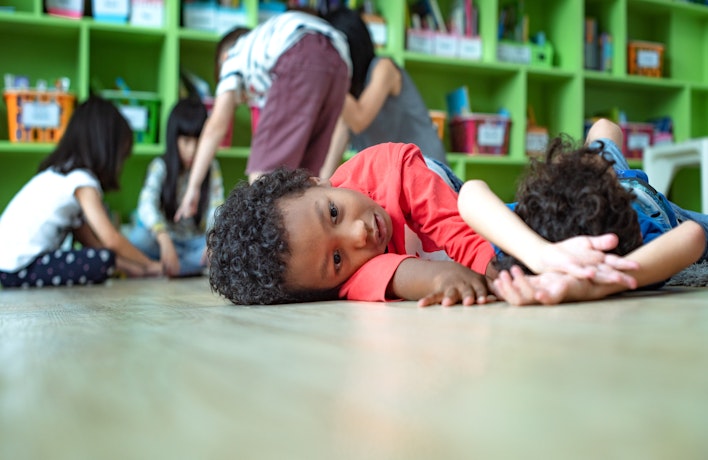A world where 250 preschoolers are suspended per day in the US alone is a world that needs a course correction.
You read that right -- according to 2017 data from the National Survey of Children's Health, 250 kids in the US are suspended or expelled from preschool each day. What’s more, the rate of expulsion is much higher among Black boys.
Researchers found that half of the 17,000 preschool students who were suspended or expelled in 2021 were Black boys even though they represent about 20 percent of enrolled children.
The impact of expulsion and suspension on children, families, and society
Recent research on Adverse Childhood Experiences (ACES) informs our increasing awareness of the impact of early trauma on a child's healthy development and the relationships between early trauma and compromised physical and mental health conditions later in life.
Expulsion and suspension practices in early childhood settings are stressful, negative experiences for young children and their families. Here are just a few of the negative impacts on our children and families.
Per findings from The Institute For Child Success, preschool expulsion and suspensions:
- Interrupt the child’s sense of security, social acceptance, and academic routines.
- Put added stress on the child’s parents who are often left to find immediate childcare or another early childhood setting, frequently without support or facilitation by the previous program of attendance.
- Are often delivered by early childhood programs that have not performed adequate developmental assessments of the child before removing them from the classroom.
- Are predictive of expulsion or suspension in later school grades.
Young children who are expelled or suspended are up to 10 times more likely to drop out of high school, experience academic failure and grade retention, hold negative school attitudes, and face incarceration than those who are not.
Variables including larger classes, a higher proportion of 3-year-olds in the class, and elevated teacher job stress were found to increase the likelihood of expulsion.
One study that assessed the quality of 65 discipline policies from state-licensed early childhood care programs found that most of the program's discipline policies fail to sufficiently address essential features known to reduce challenging behavior and promote pro-social behavior in young children. (Longstreth, Brady, & Kay, 2013)
This same study confirmed the importance of positive teacher-child interactions in reducing rates of preschool expulsion, validating the importance of providing program support in the areas of social and emotional development as well as focused interventions for children with special needs and/or mental health issues.
Students perform better when they feel supported by the adults in their lives.
If we are to protect our youngest learners, and families impacted by racism, poverty, and learning differences, we need to invest in early and inclusive social-emotional learning initiatives.

Our school systems are failing to protect already marginalized student populations that, statistically speaking, are disproportionally more likely to receive punitive disciplinary actions than their counterparts.
With the right instruction and support, every student can thrive and excel, in and out of the classroom. We do this when we:
- Invest in building stronger school-family partnerships.
- Incorporate strengths-based discipline practices into the classroom.
- Involve families, early and often, in their students' learning.
Preschool expulsions and suspensions are a national issue. It's time for us as a society to implement positive, relationship-based practices in the home and classroom to meet the social and emotional needs that challenging behaviors often represent.
With early emotional education, tools, and support that bridge home and school, we can support children, families, and educators, lower stress levels in the classroom, and prevent preschool expulsions and suspensions.




















